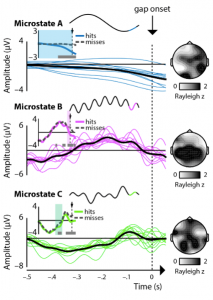The research group “Auditory Cognition” (headed by Prof. Dr. Jonas Obleser; auditorycognition.com) in the recently established Department of Psychology, University of Lübeck, is seeking to hire several
Postdoctoral Researchers
starting by January 2016, initially for 3 years, with the option of a 2‑year extension. These positions will fall into the larger framework of an ERC Consolidator grant “The listening challenge: How ageing brains adapt” recently awarded to Jonas Obleser, and will allow the joint development of cognitive neuroscience and psychological research projects targeting adaptive control in the auditory modality of middle-aged adults.
[About the ERC project: The auditory sensory modality poses an excellent, although under-utilised, research model to understand the cognitive adjustments to sensory change (here termed “adaptive control”), their neural basis, and their large variation amongst individuals. Hearing abilities begin to decline already in the fourth life decade, and our guiding hypothesis is that individuals differ in the extent to which they are neurally, cognitively, and psychologically equipped to adapt to this sensory decline.]
We are looking for creative minds with a PhD degree and a promising track record in cognitive neuroscience, psychology, physics, or engineering. A strong background and interest in research methods is desirable. Prior experience with either human neuroscience methods (especially advanced EEG and/or fMRI analyses) or modeling of rich data sets (e.g., latent growth modeling, structural equation modeling) is expected.
The University of Lübeck is a modern university specializing in Medicine, Computer Science, Molecular Biology, Biomathematics and Medical Engineering. Internationally renowned research and high standards of academic tutoring characterize the profile of the university. A new dedicated research building (Centre for Brain, Behaviour, and Metabolism; CBBM) housing also the Obleser lab will open in late 2015.
Payment will follow salary group E13 TV‑L (full time), if conditions based on German Public service regulations are satisfied.
These positions will be announced officially later in autumn 2015, but interested candidates should be in touch now with Jonas Obleser, jonas.obleser@uni-luebeck.de

